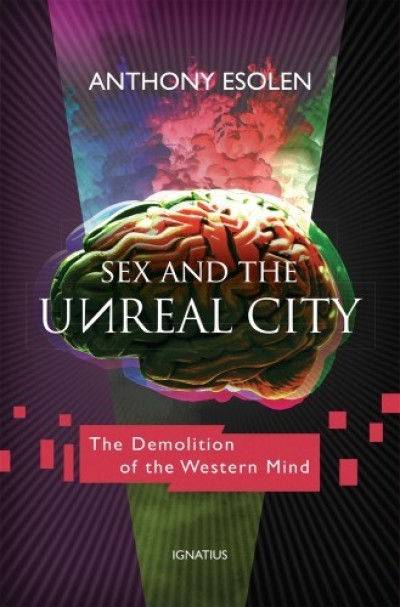Sexual insanity begins with language: These words don’t mean what you say they mean
This is an excerpt of "Sex and the Unreal City: The Demolition of the Western Mind" by Anthony Esolen.

We want to believe that our words can alter reality: we want to believe that we can, by linguistic magic, negate the Word through whom all things were made, and the things themselves. ‘‘You shall be as gods’’, said the serpent (Gen 3:5). Hence the battle in our day is theological, whether we wish to admit it or not. If a man claims to be a woman, which he can never be, and demands to be addressed as such, he is not merely asking for right etiquette. He is demanding that we enter his delusion, or his lie. It is not true. He is demanding that believers in God fall in worship of an idol. Some idols are hideous, like Moloch, and some are beautiful, like Dionysus. The Hebrew prophets did not care. They did not condemn the idols for their style. They condemned them for being false. We have names for people who accustom themselves to speaking what they know to be untrue. We call them scoundrels or cowards. That a certain realm of our lives — the technological — is held mostly immune from our falsehoods does not necessarily make things better. We are scoundrels and cowards, with airplanes, computers, and bombs.
It may seem odd, meanwhile, that a chapter about bodies should begin with a discussion of words. But the unreality of the ‘‘transgender’’ movement, set ablaze by the wildfire of the sexual revolution generally, depends for its existence upon the supposition that realities depend upon words, so that whoever controls the language controls the universe. It is as if we could say ‘‘same-sex marriage’’, and hey presto, there would be such a thing, or as if a man could declare himself to be a woman, and so it is. It is as if we were gods, as he who was a liar and a murderer from the beginning promised us.
Sometimes whole societies make long forays into madness, but such a situation cannot endure, and people return to something like sanity. Consider this business of a ‘‘transgender’’ movement. There are people of either sex who believe that they are really members of the other. How they can know this, no one says. It is a mere feeling, usually a feeling of intense dissatisfaction or disgust with one’s own sex and one’s body. It is like anorexia in that regard: as when young women who are nothing but skin and bones feel they are fat and see only fat, and they starve themselves to get rid of what does not exist.
Adults in the grip of this sexual delusion are now encouraging children to join them. They are subjecting the children to irreversible mutilation of the body, castrating little boys and performing mastectomies on teenage girls, to live a fantasy, a pretense. For there are well over six thousand physical differences between males and females, and all the surgeries can do is to mimic some appearance of the opposite sex, such as make chin hair grow on females or swell the breasts of males with fat. Some males have themselves castrated and then ask surgeons to trowel out a cavity in the crotch to mimic a vagina. Some females have the pin-the-tail operation, to be fitted out with a mock membrum virile. The whole movement is ghastly.
I once heard from a man, a former professor of art. His job was to teach anatomical drawing, and he got into trouble when he tried to correct the work of some students who could not draw the male and female bodies correctly. He tried to explain the difference between the male pelvis and the female pelvis, in width and in how the bones open out. When he asked a female art professor to let him know how he might talk about such things without giving offense, she replied that anatomy was a male construct and that art students, especially the feminists, need have nothing to do with it. He told me that he soon left that line of work. Who knows how many artists will have had their talents thwarted by such political nonsense? Leonardo could draw a human body. These artists cannot. Leonardo studied anatomy, with painstaking exactitude. These artists have not. Hence, they will draw forms that will be like sagging bridges. Sane people, when we have sane people again, will notice it and evaluate the work accordingly. But living in Unreal has made it hard for us to imagine anything else.
And the nonsense is everywhere.
Anthony Esolen translated the Modern Library edition of The Divine Comedy, as well as the Johns Hopkins edition of Torquato Tasso's Jerusalem Delivered. An award-winning contributor to numerous periodicals, he has authored fourteen books of nonfiction, including Defending Boyhood, Out of the Ashes, and The Politically Incorrect Guide to Western Civilization, as well as a book of poetry, The Hundredfold. He has taught at universities since 1987 and currently serves as professor of literature and writer in residence at Magdalen College of the Liberal Arts in New Hampshire.



























